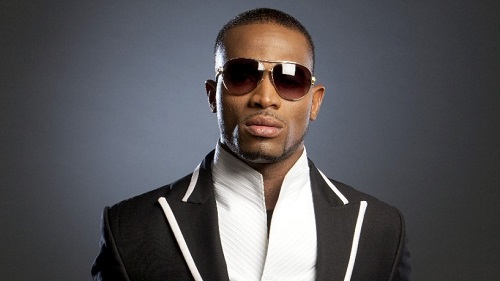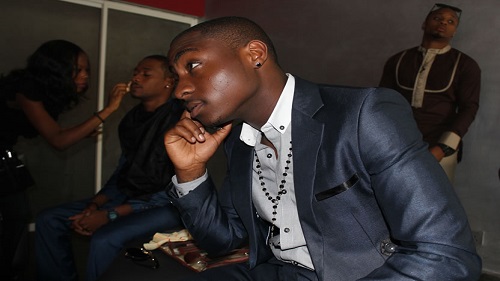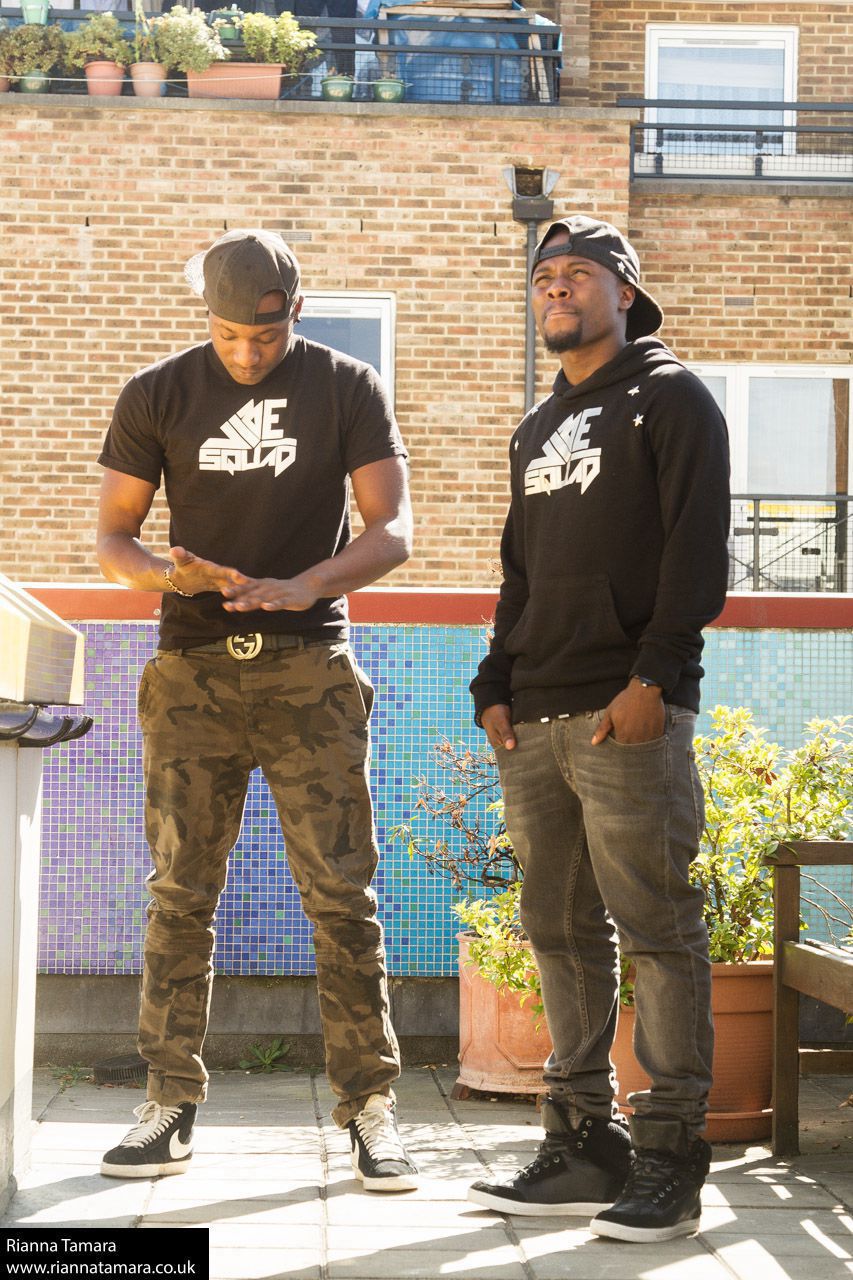
From DJ Mag #532
Nearly half a century after Fela Kuti first created Afrobeat, layering hard American funk over traditional African music, Kuti’s name has become common currency. Jay-Z has produced a Broadway musical to mint profit from Fela’s revolution. Kuti albums warble at polite volume in a million branches of Starbucks, and preppy indie bands plunder his propulsive riffs at will. A music that was bursting with wild innovation has become tamed with familiarity.
Back in Africa, however, and across the far-flung global African diaspora, the Afrobeat sound is old hat. Much loved maybe, but you’re as likely to hear it blasting peak-time in the clubs of Lagos and Accra as you are to hear The Clash played at Fabric. Instead, a new sound has risen, driven by easily available digital production techniques. Fusing American R&B, low-res rips of EDM synths, and intricate African percussion, a generation is following in Fela’s steps to create a hybrid that is as vital to 21st Century Africans as Afrobeat had been in Kuti’s day. Little surprise then, that the sound has been christened, in homage to the master, Afrobeats.

EVASIVE DEFINITION
Trying to pin down exactly what Afrobeats is can prove tricky. In a global sense the name covers a wealth of styles emanating from Africa, from Jamaican-influenced Afro-dancehall, to the smooth Kwaito grooves that rule South Africa, to the ultra-fast, chaotic Angolan rap rave of Kuduro. Whilst this has meant there are producers all over Africa credibly calling their sound Afrobeats, in the Anglophone world Nigeria and Ghana are the undisputed pace setters.
The cities of Lagos and Accra are blazing with creativity, with sounds evolving quicker than genre tags can keep up. Producers such as Killbeatz and Ball J are churning out tracks by the week, strange, often spartan mutations of house and R&B, characterised by a gleeful, kitchen sink approach to electronic decoration. Synth sounds are spliced in at will, from hi-octane screaming Dutch leads, to blankets of luscious deep house chords. If something works it sticks, if not, not to worry, another vibe will be out next week.
Whilst Ghanaians invented the theatrical dance — Azonto — that has come to dominate the visual aesthetic of Afrobeats, Nigeria can claim the first genuine pop crossover smash in D’Banj’s ubiquitous ‘Oliver Twist’. ‘Oliver’ picked up fans from Romford to Romania with its gleeful, Don Jazzy-produced bassline, and made D’Banj a Kanye West signed star. When asked why, after 10 years of recording, he should find success now, the Lagos-based musician is thoughtful.
“There are a lot of factors that made ‘Oliver Twist’s success possible,” he ruminates over the long distance line. “Africa is on the map right now — all eyes are on us, and it’s not just for the land, or the oil, or famine, or agricultural or raw natural substances. People’s minds are turning to Africa for more, for culture and entertainment. There is an opportunity for a different kind of sound — we have the confidence now to do entirely African music. ‘Oliver Twist’ didn’t feature anyone, it didn’t have a guest star, and it was still getting played in London, in Hungary, in Romania… they thought I was American..!”
D’Banj is currently promoting his new single ‘Bother You’, inspired by the recent adaptation of Chimamanda Adiche’s novel ‘Half of A Yellow Sun’. It’s an unashamedly poppy affair, splicing vocal patterns cribbed from Lionel Richie’s ‘All Night Long’ over shuffling Afro percussion — it’s likely to score a huge hit for him, and this is crucial for D’Banj. He wants African musicians to be embraced by the mainstream, seen as stars first and Africans second, if at all. “We do not want to be called ‘world music’ anymore… we don’t want to be in a second category, I want there to be superstars from Africa in the same way there are from London, from Jamaica, from America.”
Whilst D’Banj is trying to open doors with a softer sound, designed to appeal across the board, his contemporaries continue to push boundaries with music that is both immediately danceable, and quite unlike anything that has come before. Fellow Nigerian Davido is currently in London completing a hectic whirlwind of promo to support the release of ‘Skelewu’, a huge club smash across Africa, now set for official UK release. The track is remarkable, made of two percussive notes, cutting, sharp, across a shuffling house beat. Davido’s reverb and delay drenched vocal croons over the top, ghostly as a dream. The track creates a new language for pop music, similar to the haunted nocturnal dubstep of Burial given a compulsive, dancefloor-friendly makeover.
Davido insists that “When we did ‘Skelewu’, we were just thinking out of the box, we just did what was in our head — Afrobeats doesn’t have a trend, we just make different kinds of music, and it works… when we released the track we didn’t know it would get this big, and as it got bigger and bigger we started making bigger plans”. He acknowledges the vital role played by the spread of internet access across Africa in allowing the music a wider audience.
“Having ‘Skelewu’ online spread it to like 18 countries in six months, like wildfire. We had a competition across Africa to see who could do the best ‘Skelewu’ dance, and so many people from the UK were uploading videos, I was like wow, let’s bring it here.”

UK AUDIENCE
It’s little surprise that ‘Skelewu’ should find fans in England. In the UK, Afrobeats is solidifying into a cohesive genre, a development of the UK club continuum that stretches back through grime, two-step and house. This homegrown version can be broadly said to have picked up where the UK funky scene fell off, with syncopated, house tempo drums interrupted by kinetic stabs of African melody.
The roots can be heard in a number of funky tracks, themselves overtly influenced by African rhythmic patterns; listen to Apple’s blistering drum-heavy production on ‘Mr Bean’, or to the stripped groove of Doneao’s ‘Party Hard’ — itself still an anthem in Nigeria. These laid the foundations for a track like ‘Skelewu’ to make sense. It’s also within the funky scene that many UK artists — now repping Afrobeats — honed their performance skills, as current lynchpin Mista Silva explains.
“Funky house put my name out there on the underground circuit, it got me a following, but it wasn’t really elevating to where I wanted to be as an artist. Within the house scene there was such a negative stigma towards MCs, it’s why funky got killed off and house went so deep — I wasn’t really interested in it when it went that deep, it didn’t give me the feel-good factor, and all the while my style was very Afrocentric, a lot of my lyrics had an African feel, so I started getting a lot of requests to do Afrobeats.” To answer the demand, Silva teamed up with a couple of other MCs, Kwamz and Flava, and jumped on a beat written by South Africa’s DJ Cndo. The result, ‘Bo Won Sen Ma Me’, blew up.
“I can say this was the first UK Afrobeats track to get attention from the public — there had been a couple of artists who’d tried but it hadn’t really happened. When I stepped onto it, it took off straight away! Within the first week there were 70,000 views on YouTube, it was going crazy, my Twitter was going crazy, people really liked how I was blending the two cultures.”
FEEL-GOOD FACTOR
Silva followed with ‘Boom Boom Tah’, and became the first unsigned act to be playlisted on 1Xtra. Clubbers sick of hollow hip-hop posturing immediately latched on to the hyped-up energy the Afrobeats sound generated. Crucially, the MCs have abandoned screwfaced beefing and gunman clichés. Instead, positive messages are smuggled into grimy, multilingual flows, and in many ways the lyrical innocence, with songs about love, girls, hanging out, dancing and partying, bear more in common with the golden age of hip-hop than anything a major label has promoted recently.
“In the urban scene a lot of the music which comes out has some kind of negative root to it, or somewhere in there there’s some form of negativity,” Silva agrees, “and you don’t get that in Afrobeats, the music is about the feel-good factor. Afrobeats promotes love.”
Love is something that comes up time and again talking to the UK Afrobeats artists. Fuse ODG has had the support of long-standing indie label 3 Beat, and has rewarded that belief with three consecutive Top 40 hits. There isn’t a trace of arrogance about the English Ghanaian star though, and he’s quick to share credit with other artists breaking through.
“The scene is a family,” Fuse explains over the phone from his South London studio. “Grime was more of a battle scene. This isn’t a battle, we’re about community. We’re all supporting each other. To me, Africans are loving individuals; we like to support each other. The music isn’t aggressive and that helps, cos artists like Mista Silva, Kwamz, they’re moving like grime man dem, but with love. The music they’re making is so fun. That’s the difference, it’s all love. That can go a long way to keep a whole scene moving instead of all of us battling each other.”
Fuse is one of the only artists to have received any sort of mainstream label backing. It’s paid off, and he appreciates their hands-off approach. “To be fair to my label, 3 Beat, they’re ahead of everyone. They’re taking music for what it is. They’re the first label I’ve encountered who understand music and don’t try and corner it. All the other labels need to catch up.”
MAINSTREAM SUCCESS
This is a problem stymieing the scene — for the majority of artists a cheque and golden handshake remain elusive. Despite hundreds of thousands of YouTube plays — sometimes millions — major labels remain wary, and there is a sense of frustration amongst the performers. Kelvin from established UK outfit Vibe Squad has seen his current single ‘Drop’ — part subterranean house jam, part Mad Decent banger — pick up 50,000 views in less than a month.
His older tracks have been hitting the quarter million mark, but as he notes, “The corporations, the big dogs, they’ve heard about Afrobeats, but I don’t think they’re really ready to accept us. And that’s something we’re really working on, because every video that Vibe Squad, that Fuse, that Silva puts out gets loads of views, views that these established and signed artists aren’t getting — yet we’re not being represented on the radio, on TV, as much as we’re being represented in the rest of the world on the streets.
“When we talk about how to progress the scene, there’s a debate going on about what artists should do next — some people think that for the industry to get it we need to water down the sound, or commercialise it, or we have to start using proper English in the songs, but other people argue that that takes away from the soul, and the whole point of the music. I think success can be reached without compromise— it’s a sound that needs getting used to, but people will and what’s ‘commercial’ will come to us.“
The numbers are adding up. Most A&Rs would give their shrivelled right nostril for acts with such clear, genuine grassroots support, but still the industry’s traditional nerviness around new movements is evident. Although this may be a bone of contention with artists who need funds to take their career to the next level, for fans it means that the Afrobeats scene is developing relatively organically, able to encompass both the melodic and accessible and the wildly avant-garde, much like the giddy early days of house.
Kelvin — like all of the Afrobeats artists — is cautiously optimistic about the future. “It’s getting a buzz right now but it’s got further to go. It’s going to spread,” He says with certainty. “This is going to be something massive.”And right now, it’s impossible to believe he’s not right.
